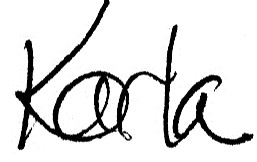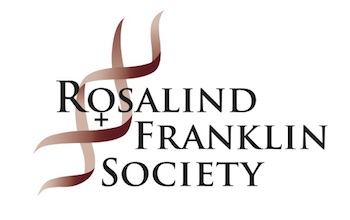RFS Briefings - May 12, 2020
Dear Colleagues,
I am pleased to include another issue of RFS Briefings with some timely and encouraging updates on women in science. There is some good reading here as you adjust to new routines and patterns in life at home.
Of note, several opportunities for prestigious 2020 awards are highlighted below:
- The Vilcek Foundation is accepting applications for its 2021 Prizes for Creative Promise in Biomedical Science, due by June 10, 2020. Three Prizes of $50,000 each will be awarded to young foreign-born biomedical scientists who have shown early achievement in basic, applied, and/or translational biomedical science. Read more.
- Applications are being accepted through June 15, 2020 for the annual Eppendorf & Science Prize for Neurobiology, an international award of $25,000 that honors young scientists for outstanding contributions to neurobiological research based on methods of molecular and cell biology. Read more.
- Applications are being accepted through July 15, 2020 for the Science and SciLifeLab Prize for Young Scientists, which is presented in four categories: Cell and Molecular Biology; Genomics, Proteomic and Systems Biology Approaches; Ecology and Environment; and Molecular Medicine. Read more.
- The 2021 application period for The Paul & Daisy Soros Fellowships for New Americans, supporting immigrants or children of immigrants who are pursuing graduate studies in the United States, is now open. Read more.
See below for more news about women in science
Please continue to share important news and opportunities with us so that we may share it with you, and others who are committed to supporting the careers of exceptional women in science.
Hoping you are safe and healthy,

Karla Shepard Rubinger
Executive Director
Rosalind Franklin Society
The Leader We Wish We All Had
Amy Action, MD, MPH, director of health for the Ohio Department of Health, was featured in an Opinion piece in The New York Times, with an accompanying video, for her local leadership during the COVID-19 pandemic. She spearheaded the state’s early and aggressive response and became an effective and popular messenger with daily briefings, a Facebook fan club, T-shirts, and more. Read more.
Stories of Women in STEM You Might Have Missed in April 2020
In a creative and informative YouTube video, Science Visuals features interviews with nine women in science who are taking charge, including feeding the world, leading academies, and inspiring social reform. The message of this video is that all scientists, regardless of their differences, are “’people working together on a problem.’”
Eight Receive UW OWN It! Awards for Women in Science
The 2020 Own It! Awards, recognizing the outstanding work of women in STEM both on campus and off, were presented to eight University of Wyoming employees and students. This award, in its fifth year, is sponsored primarily by the Wyoming National Science Foundation Established Program to Stimulate Competitive Research. Read more.
Four Princeton Professors Elected to National Academy of Sciences
Four Princeton professors, all women, were elected to the National Academy of Sciences in recognition of their distinguished and continuing achievements in original research. Among the 146 scientists, scholars, and engineers elected this year, they are: Anne Case, PhD, Professor of Economics and Public Affairs, Emeritus, who has written extensively on health over the life course; Jennifer Rexford, PhD, chair of the Department of Computer Science and Professor of Engineering, who has focused on methods to improve and expand digital communications; Suzanne Stags, PhD, Professor of Physics, who measures the cosmic microwave background (CMB) radiation leftover from primeval plasma; and Elke Weber, PhD, Professor in Energy and the Environment and professor of psychology and public affairs at the Woodrow Wilson School of Public Health and International Affairs, who is internationally known for using behavioral decision science and psychological theory to advance global understanding of and help to alleviate social problems. Read more.
Nimbus Founder Rosana Kapeller Has a New Company
Rosana Kapeller, MD, PhD, has launched ROME Therapeutics, with $50 million in funding, as one of a series of biotech’s that have arisen in the past few years to target what was formerly deemed “’junk’” DNA. The term refers to the 97-99% of genetic code that doesn’t code for proteins. ROME will focus on one segment, called “’repeatome,’” that are like “. . . the first responders, telling the body these cells are becoming uncontrollable – control it,’” according to Kapaller. Bringing her past leadership experience to this venture, she believes that “. . . diversity and putting women in management matters.” Read more.
Glove at First Sight
An engaging science history podcast reveals the story of the long-forgotten nurse, Caroline Hampton, whose ingenuity was responsible for the invention of rubber surgical gloves, the first type of personal protective equipment introduced into medical practice in the late 1800s. She became a chief surgical nurse at Johns Hopkins University, where she was almost forced to quit the profession because of the damage to her hands by the harsh chemicals used to clean the hands of surgeons and nurses during that time.
2020 Science and SciLifeLab Prize for Young Scientists
Applications are being accepted through July 15, 2020 for the Science and SciLifeLab Prize for Young Scientists, which is presented in four categories: Cell and Molecular Biology; Genomics, Proteomic and Systems Biology Approaches; Ecology and Environment; and Molecular Medicine. Winners from each category will compete for the Grand Prize. Eligible entrants must have been awarded their doctoral degree in 2018 or 2019. Two of the four 2019 winners are women: Dr. Barbara Klump, Ecology and Environment; and Dr. Humsa Venkatesh, Molecular Medicine. Read more.
Cottrell Scholars 2020: The Future of Science
Research Corporation for Science Advancement has named 25 early-career scholars in chemistry, physics, and astronomy as its 2020 Cottrell Scholars. Recipients of the $100,000 award are recognized for high-quality research, innovative educational initiatives, and academic leadership. Three Scholars, who are further advanced in their careers, also received awards, namely, the IMAPCT award for national impact in science through leadership and service, or the STAR award for excellence in science teaching and research. Women represented 13 of the awardees, overall. Read more.
The Suffragette Surgeons
Endell Street: The Trailblazing Women Who Ran World War One’s Most Remarkable Military Hospital, written in 1920, is the story of two female physicians in London who were active suffragettes. As qualified doctors, Flora Murray and Louisa Garrett Anderson were the hospital’s commanding officers. Endell Street was the only British army hospital to be staffed and entirely run by women for the duration of the war. It was unlike any other military hospital, with its wards decorated with colorful quilts and flowers as part of the psychological techniques promoted by Anderson to heal the mind as well as the body. Life partners, Drs. Murray and Anderson met while waging a women’s war against the British government. This compelling story, written by Wendy Moore, is finally being recognized. Read more.
Eppendorf & Science Prize for Neurobiology 2020
Applications are being accepted through June 15, 2020 for the annual Eppendorf & Science Prize for Neurobiology, an international award of $25,000 that honors young scientists for outstanding contributions to neurobiological research based on methods of molecular and cell biology. Read more.
The Woman Who Discovered the First Coronavirus
COVID-19 is caused by a coronavirus of the type first identified in 1964 by June Almeida. She pioneered a method which better visualized viruses by using antibodies to aggregate them. Born in 1930, she grew up in a tenement in Glasgow, with little formal education after leaving school at age 16. She worked as a laboratory technician in histopathology at the Glasgow Royal Infirmary and after marrying and moving to Canada, worked at the Ontario Cancer Institute in Canada where she developed her outstanding skills with an electron microscope. When her talents were recognized in the UK, she was persuaded to move to London to work at St. Thomas Medical School, where she identified what became known as the first human coronavirus. Now,13 years after her death, she is finally being recognized for her work. Read more.
2020 Class of Paul & Daisy Soros Fellows
The 2020 Fellows are made up of 30 outstanding immigrants and children of immigrants from across the country and the world who are pursing graduate studies here in the United States. This year’s cohort includes 11 young women. The application for the 2021 Fellowship is now open. Read more.
2021 Vilcek Prizes for Creative Promise in Biomedical Science
The Vilcek Foundation is accepting applications for its 2021 Prizes for Creative Promise in Biomedical Science, due June 10. Three Prizes of $50,000 each will be awarded to young foreign-born biomedical scientists who have shown early achievement in basic, applied, and / or translational biomedical science. Read more.
From the Hospital to the Lab, Black Scientists Are Fighting COVID-19
The importance of Black scientists is more evident than ever before because people of color are more vulnerable to COVID-19 and have a disproportionately higher death rate. Forbes features four Black scientists in this article, two of whom are women: Kizzmekia Corbett, PhD, a viral immunologist at NIH, is leading an effort to develop an mRNA vaccine; and Tomeka Suber, MD, PhD, a frontline pulmonologist, is an expert in acute respiratory distress syndrome. Such representation and visibility can help reduce the marginalization of people of color and inspire the next generation of scientists, according to the author. Read more.
E. Margaret Burbidge, Astronomer, Dies at 100
Dr. Burbidge, an astrophysicist who is recognized as one of the foremost astronomers in the world and a trailblazer for women in the field, died on April 5. Early in her career she was denied access to a telescope, “the very instrument an observational astronomer needs most,” because the field was so markedly male-dominated. Read more.
Nearly 90% of Men – and Women – Are Biased Against Women
According to “Tackling Social Norms,” a recent report released by the United Nations Development Program, people’s beliefs still have a negative impact on women’s rights and equality. Reflecting data from 75 countries, comprising 80% of the world’s population, the Gender Social Norms Index showed that almost 90% of men and a surprising 90% of women hold some form of bias against women. Read more.
A New Era for Girls
The United Nations Children’s Fund released a report, “A New Era for Girls: Taking Stock of 25 Years of Progress,” New York (March 2020), which found that while girls’ lives are better today, the gains are uneven across regions and countries, especially for adolescent girls. It focuses on three critical areas: ensuring access to 12 years of education and requisite workforce skills; ending gender-based violence, child marriage, and female genital mutilation; and improving girls’ health and nutrition. Read more. |
